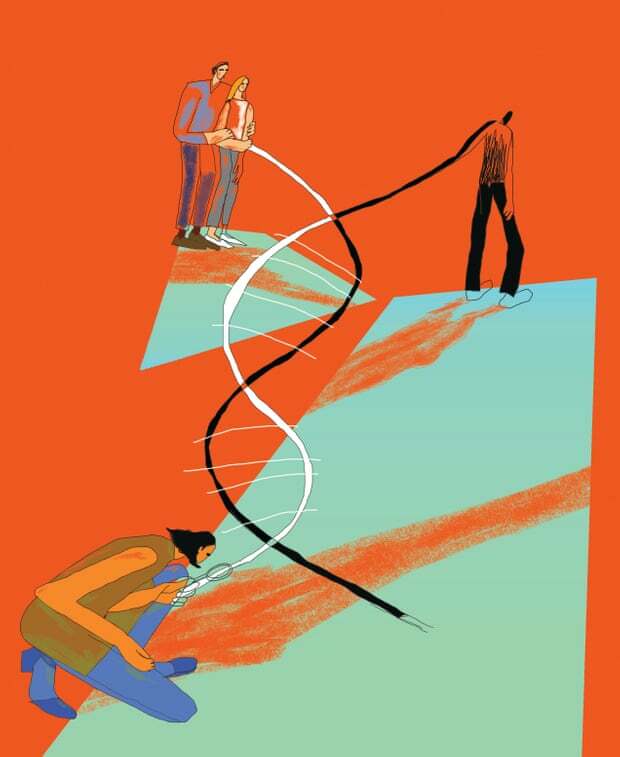Curiously Not Curious
By admin on August 10, 2019
Illustration: Hannah Ekua Buckman
Sometimes, donor-conceived people claim that they’re not curious about or interested in meeting their half-siblings or their other biological parent (donor). I’ve found that when we dig a little deeper into the issue, we often find that this ambiguity (or outright disinterest) is sometimes rooted in:
- A feeling that any curiosity they might have will be perceived as a betrayal of sorts to the parents who are raising them, particularly to the non-bio parent
- Thinking that their parent(s) would disapprove of any curiosity and/or a desire to meet, or that parents would be disappointed in some way (especially if parents have minimized/negated/dismissed the importance /significance of the child’s unknown biological parent)
- Fear of not being good enough, or not having accomplished enough, or not being mentally stable enough, or just not being at the “right place” in life
- Fear of not being accepted
- Fear of learning that the biological parent who contributed 50% of their DNA will be flawed in some way, which might then impact their own sense of personal identity
- Concern that the sibling(s) they’ve grown up with don’t approve
- Fear that meeting genetic relatives will somehow take away from their current family relationships, family system, and family stability
- The clear message that offspring have received from their parents (both action and inaction can speak louder than words) that the donor or half-siblings would not be a welcomed addition to the family
- Worry that they’ll be disappointed with their new relatives
- Worry that they won’t have enough in common
- Concern about not having the emotional bandwidth to deal with a meeting, or with incorporating new relatives into their lives
- Worry that friends and family will be judgmental — e.g., “Those people are not your family”
When parents can’t easily talk about their child’s donor family in an inclusive way, the message sent can be that the topic is off-limits.
I encourage all parents to put their own fears and hesitations aside when exploring this conversation and emotional dynamic with your kids. We want our kids to have the space and support needed to explore this other side of themselves and these new genetic relatives.
We have too many donor-conceived people joining the DSR behind their parents’ backs and too many who call for phone consults after connecting with their donor family members via DNA, who feel that their desire to know more about their half-siblings and genetic parents would be too upsetting or hurtful to their parents.
If you have a young or adult child who insists that they don’t want to meet donor family members, I suggest opening up a gentle dialog with them, just to make sure that none of these deeper issues or fears are present. If they are present, I see that as an opportunity to dialog more deeply on the issues that can affect their relationships and their own identities. In the long run, these conversations can deepen and strengthen your relationship with your child as you support them while they explore their new familial relationships.


 Browse by Clinic
Browse by Clinic
 Become a Member
Become a Member